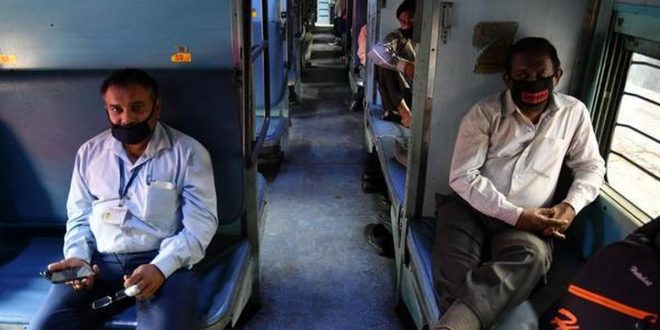New Delhi: From time to time, the rules for traveling in trains are changed by the Indian Railways. It is important that you have complete information about the rules being changed by the railways. This time, the railways have made some rules keeping in mind the troubles of the passengers in sleeping at night. After this, the sleep of the passengers will not be disturbed at night.
The new rules have been implemented with immediate effect. According to the new rules, now no co-travellers around you will be able to talk loudly on mobile or listen to songs in loud voice. Railways will take action against such people on receipt of complaints from passengers. This decision has been taken keeping in mind the convenience of the passengers.
Under the new rules, there is also a provision that if the complaint received from the passenger in the train is not resolved, then the accountability of the train staff can be fixed. All the zones have been ordered by the Railway Ministry to implement these rules with immediate effect.
According to the Ministry of Railways, often passengers used to complain of talking loudly or listening to music on the mobile of the passenger present in the adjacent seat. Apart from this, there were also complaints that some group is talking loudly in the night. Such cases also came to the notice when the scot or maintenance staff of the railway talks loudly during the patrol. Due to this, the sleep of the passengers is disturbed. There was often a dispute about lighting the lights at night.
Now these are the guidelines of 10 o’clock at night
No passenger will talk loudly or listen to loud music on mobile.
At night, all the lights except the night light have to be turned off, so that the sleep of the co-traveller is not disturbed.
- Passengers running in the group will not be able to talk till late night in the train. Action can be taken on complaint by co-passenger.
Checking staff, RPF, electrician, catering staff and maintenance staff will work peacefully at night.
The railway staff will provide immediate help to the elderly, differently-abled and single women above 60 years of age.
 Indian Thought Latest News & Views
Indian Thought Latest News & Views



